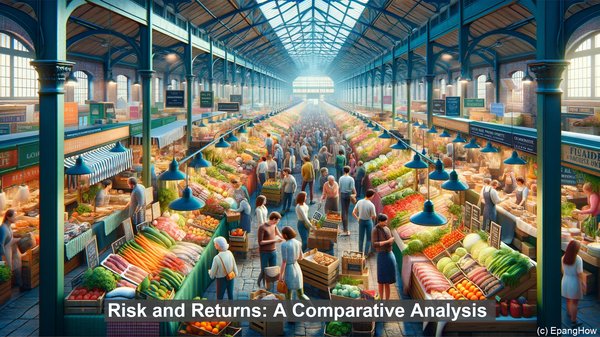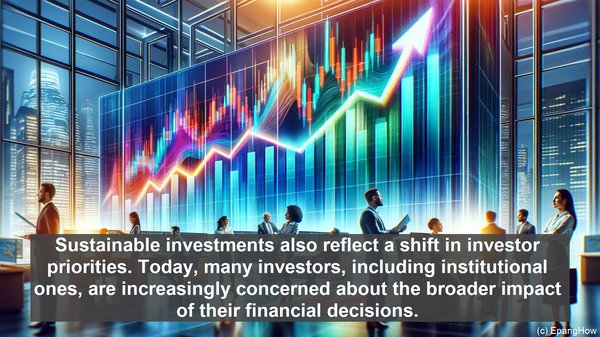Introduction: The Evolving Investment Landscape
Hello, and welcome to our article on sustainable investments versus traditional investments. As the world becomes more conscious of environmental, social, and governance (ESG) factors, the investment landscape is witnessing a significant shift. Today, we’ll explore the nuances of sustainable investments and how they differ from traditional investment approaches.
Defining Sustainable Investments
Sustainable investments, also known as socially responsible investments, are financial allocations made with the intention of generating positive social and environmental impact alongside financial returns. These investments consider ESG factors, such as a company’s carbon footprint, labor practices, or board diversity, to assess their long-term sustainability.
Traditional Investments: The Conventional Approach
On the other hand, traditional investments primarily focus on financial returns, often disregarding ESG considerations. These investments are typically guided by factors like company profitability, market trends, or industry performance. While they may yield short-term gains, their long-term sustainability and impact are not always a priority.
Risk and Returns: A Comparative Analysis
When it comes to risk, sustainable investments often involve a more comprehensive assessment. By factoring in ESG elements, investors can identify potential risks that may not be apparent in traditional investment analyses. This risk assessment can help in avoiding investments that might face regulatory challenges, reputational damage, or resource scarcity issues in the future. As for returns, while traditional investments may offer immediate gains, sustainable investments have shown promising long-term performance, especially in sectors like renewable energy or ethical consumer goods.

The Role of Investors: Beyond Financial Considerations
Sustainable investments also reflect a shift in investor priorities. Today, many investors, including institutional ones, are increasingly concerned about the broader impact of their financial decisions. They want their investments to align with their values and contribute to a more sustainable future. This growing demand for sustainable investments has not only led to the emergence of specialized funds but has also influenced the behavior of traditional investment managers, who are now integrating ESG factors into their strategies.
The Bottom Line: Complementing, not Competing
In conclusion, sustainable investments and traditional investments are not necessarily opposing approaches. While traditional investments continue to play a crucial role in the market, sustainable investments offer an avenue for investors to align their financial goals with their values. By considering both financial returns and ESG factors, investors can create a well-rounded portfolio that not only generates profits but also contributes to a more sustainable and inclusive world.

